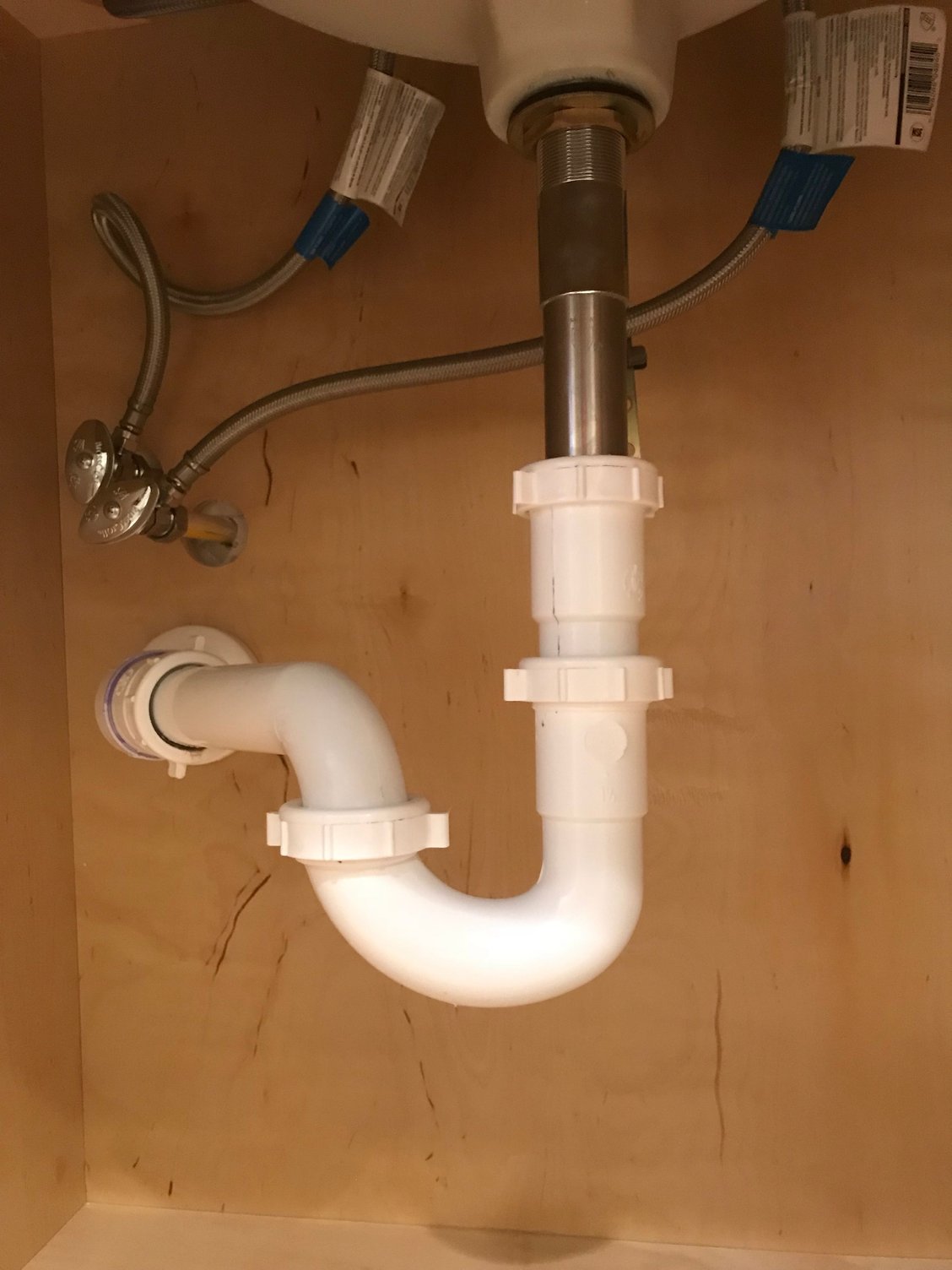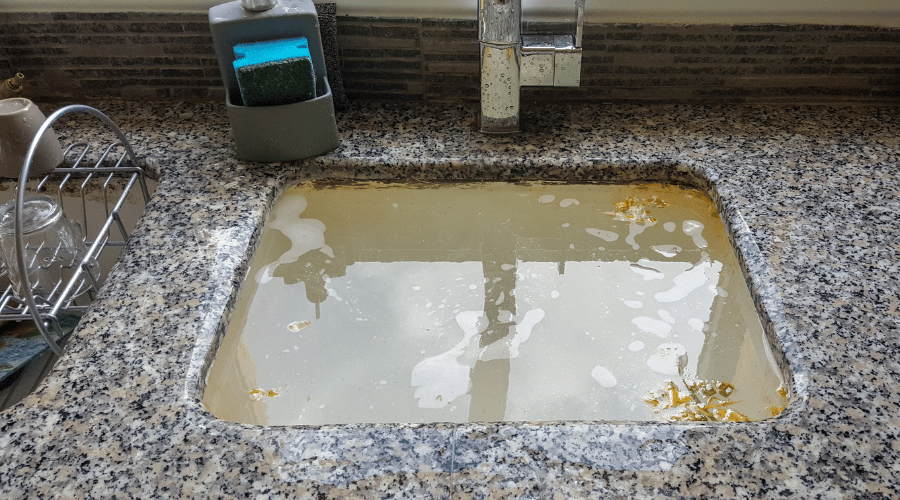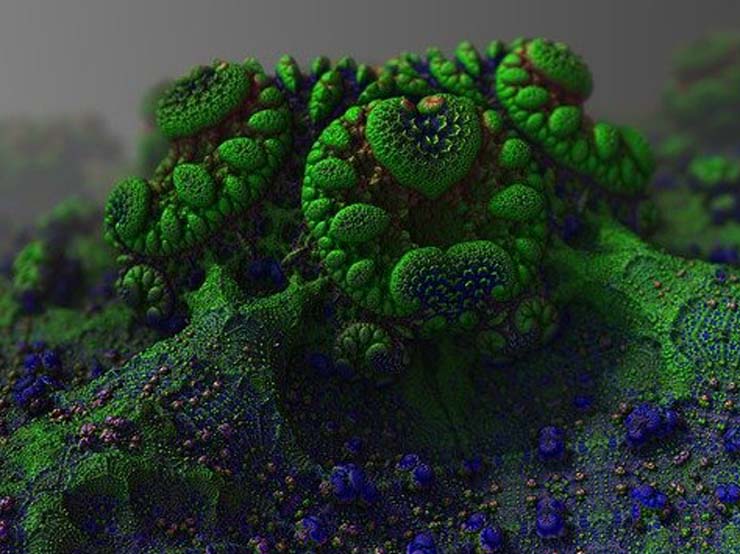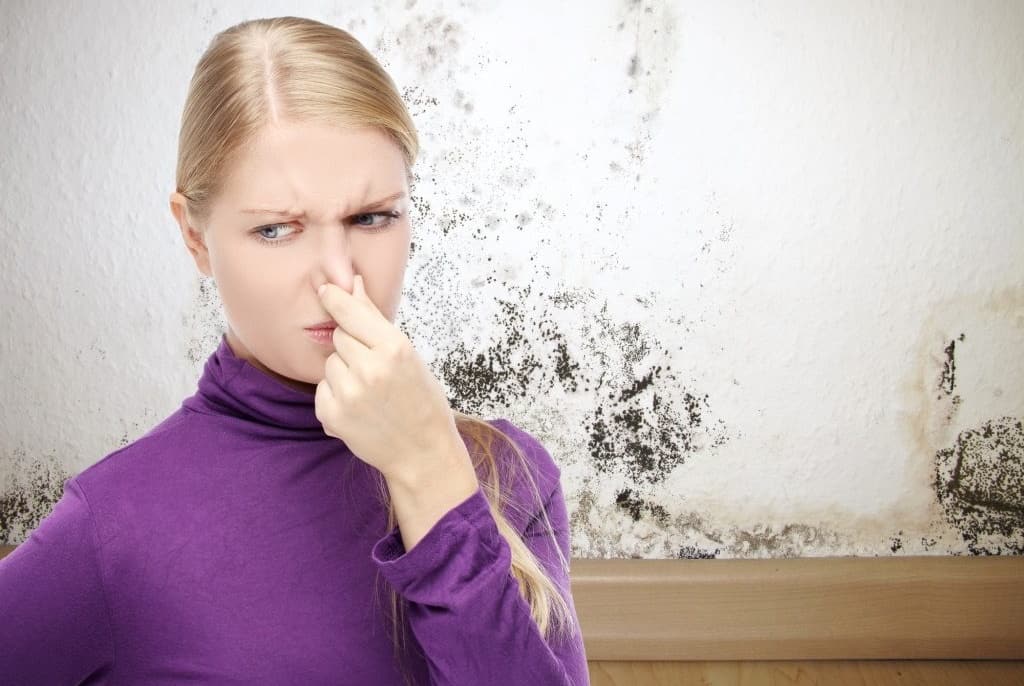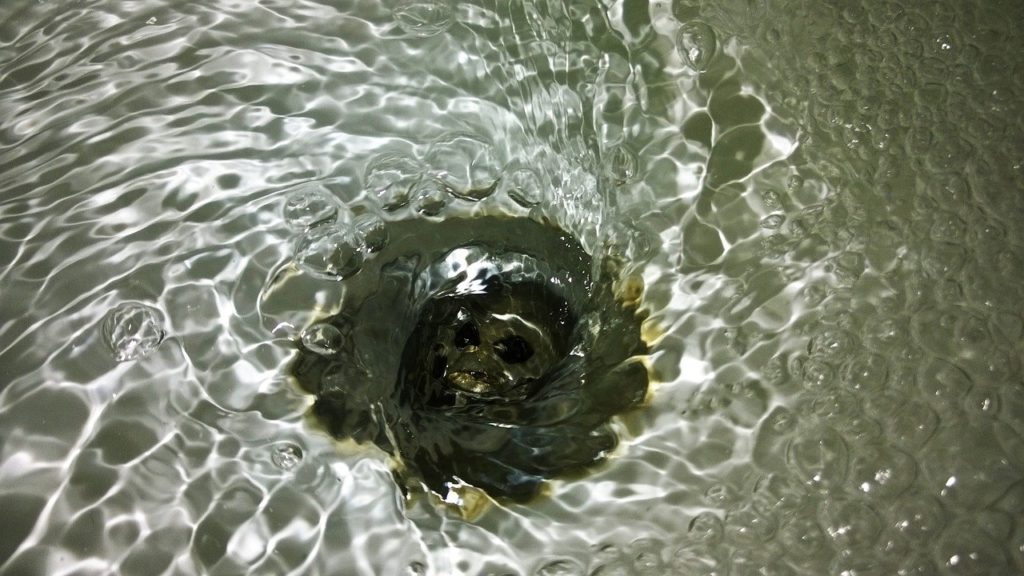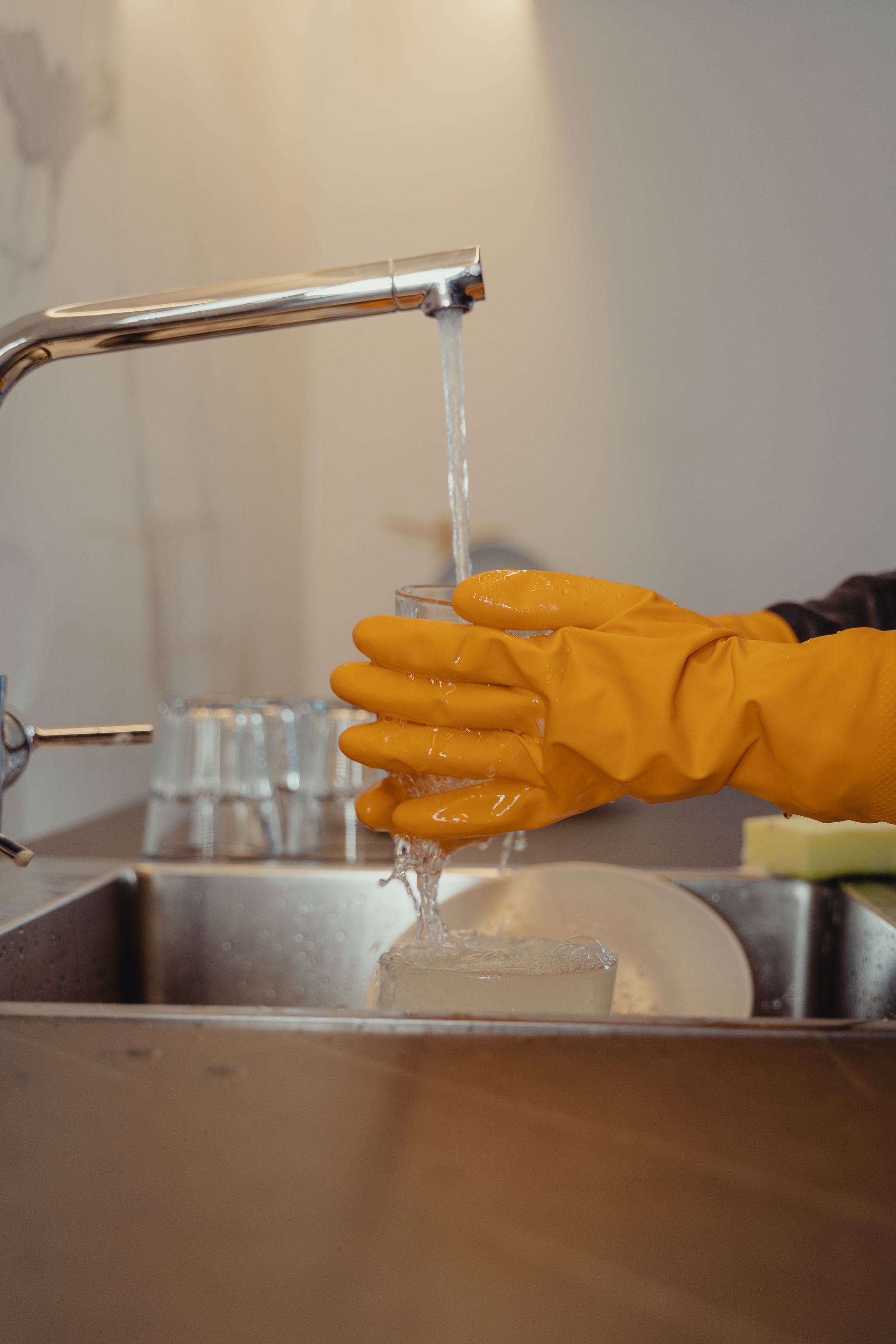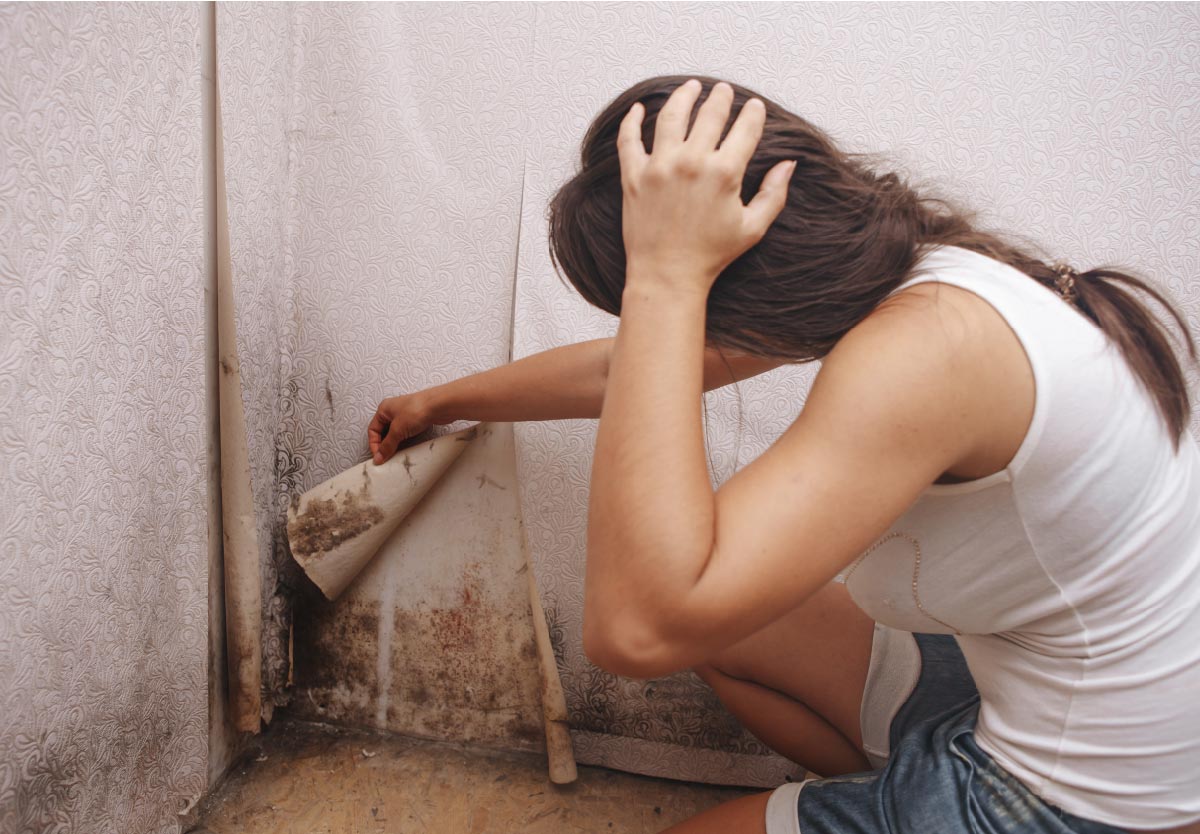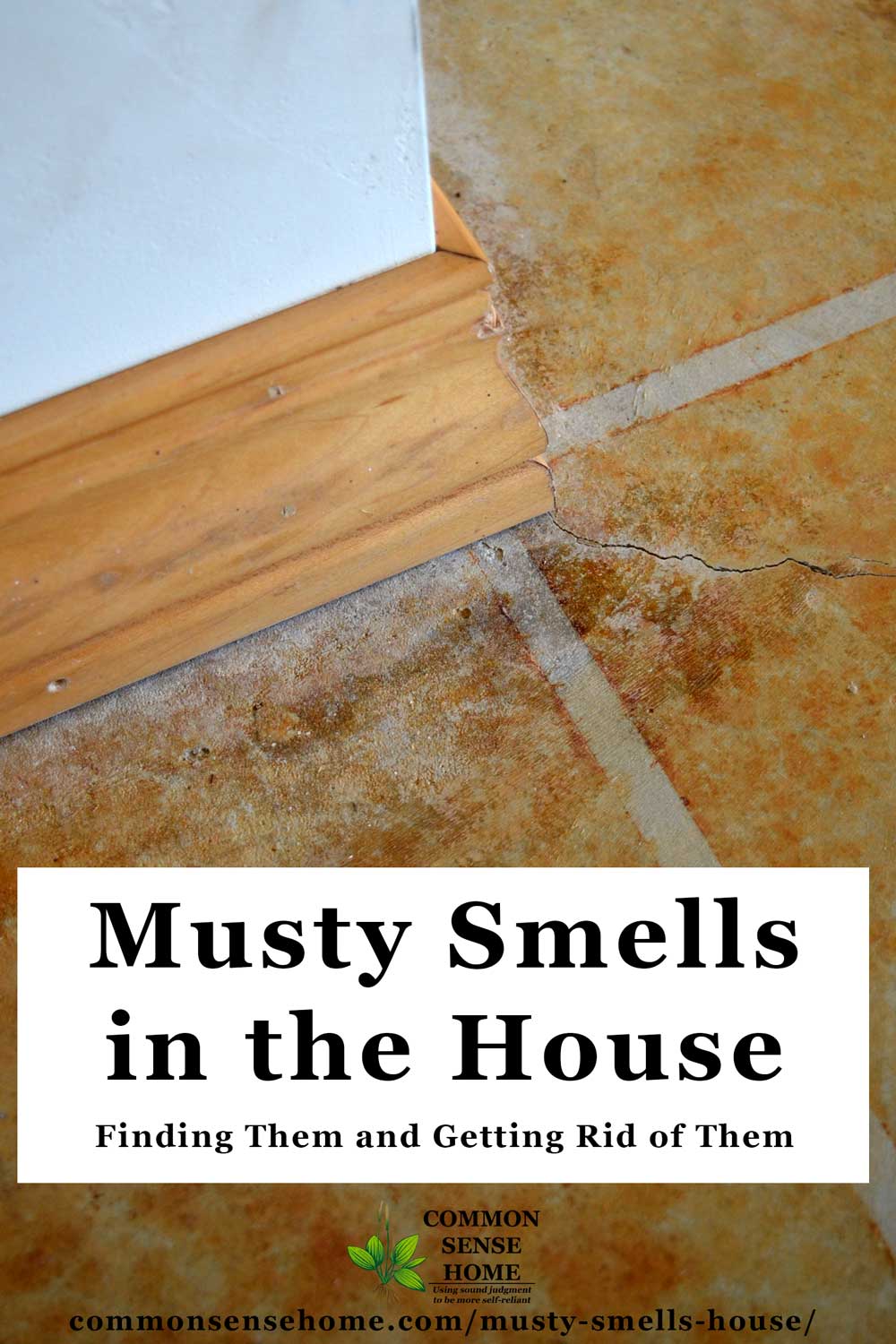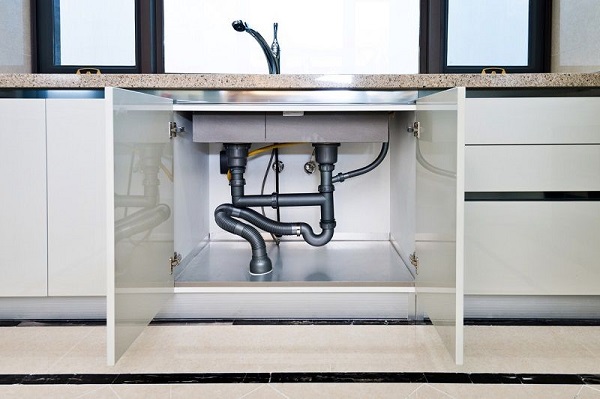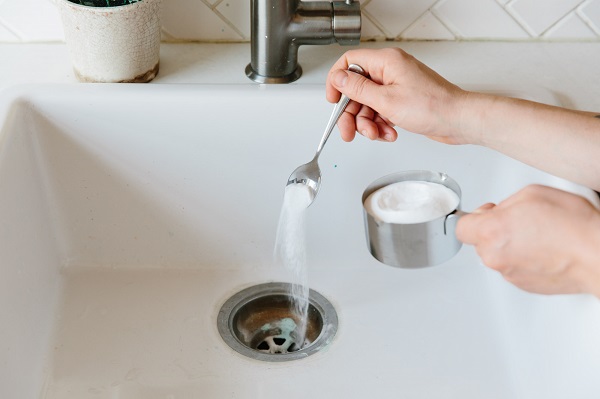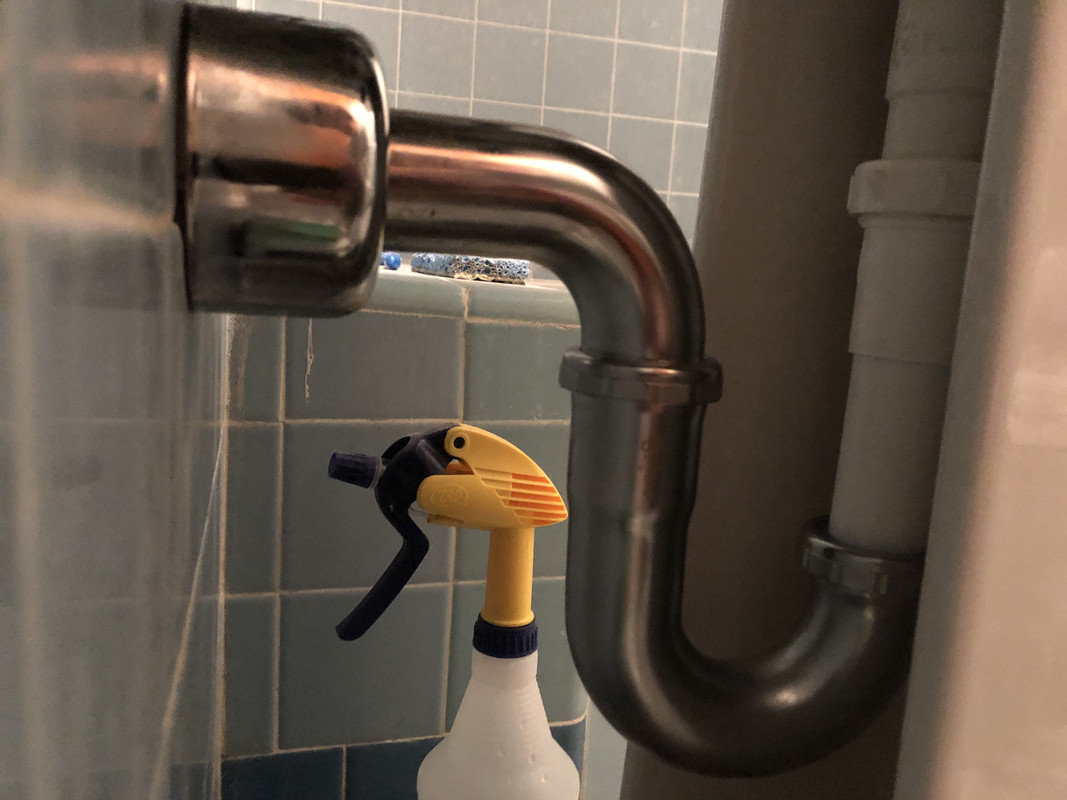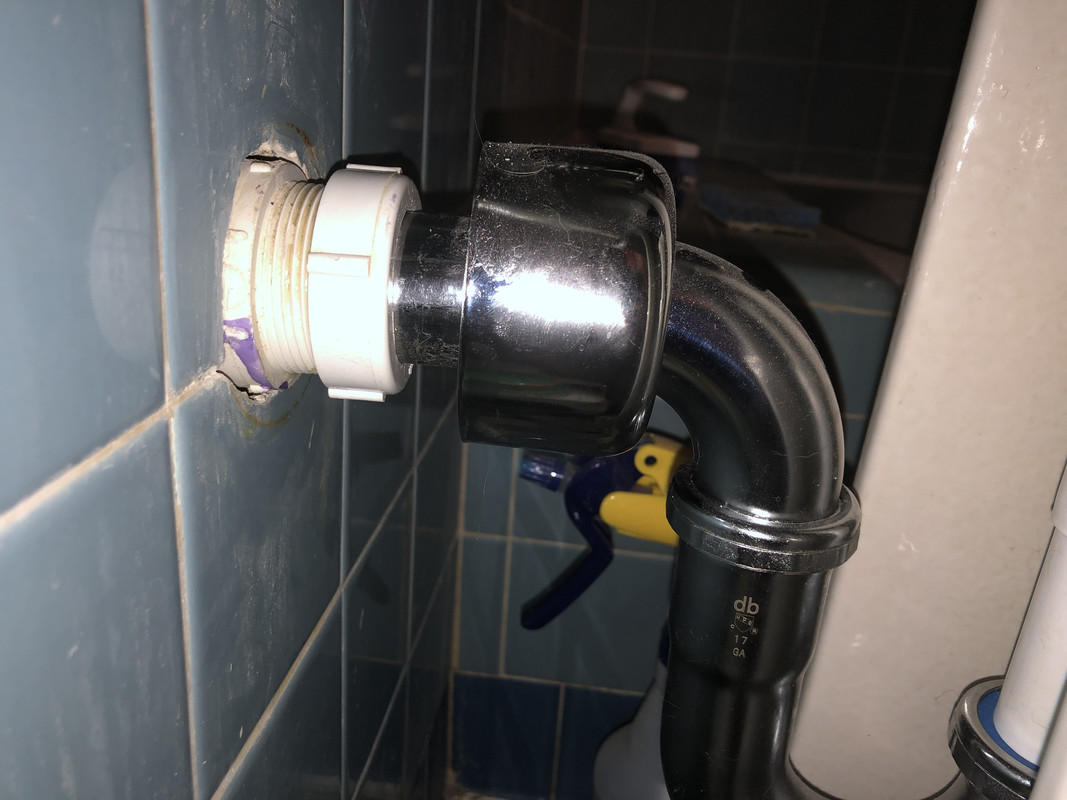A musty smell in the kitchen sink can be caused by various factors, including buildup of food debris, mold or mildew growth, clogged drain pipes, and a faulty garbage disposal. These issues can lead to a buildup of bacteria and fungi, resulting in a musty odor that can be unpleasant and unhygienic.1. Causes of a Musty Smell in the Kitchen Sink
There are several ways to eliminate a musty smell in the kitchen sink. One option is to pour a mixture of hot water and baking soda down the drain, followed by lemon juice or vinegar. The acidic properties of these ingredients can help break down buildup and neutralize odors. You can also try using a commercial drain cleaner or a mixture of dish soap and hot water.2. How to Get Rid of a Musty Smell in the Kitchen Sink
To prevent a musty smell from developing in your kitchen sink, it's important to regularly clean and maintain it. This includes regularly flushing the drain with hot water, using a sink strainer to catch food debris, and running the garbage disposal with cold water after each use to prevent food buildup. You can also try pouring a cup of vinegar down the drain once a week to help keep it clean and odor-free.3. Tips for Preventing a Musty Smell in the Kitchen Sink
There are several common culprits for a musty smell in the kitchen sink, including a buildup of food debris, mold or mildew growth, and a clogged drain. Other factors that can contribute to a musty smell include a damaged or faulty garbage disposal, a leaky faucet, or a poorly ventilated kitchen.4. Common Culprits for a Musty Smell in the Kitchen Sink
If you prefer to tackle the issue yourself, there are several DIY solutions for eliminating a musty smell in the kitchen sink. In addition to using hot water and baking soda, as mentioned earlier, you can also try using a mixture of salt and lemon juice, or a solution of hydrogen peroxide and water. These natural ingredients can help break down buildup and neutralize odors.5. DIY Solutions for a Musty Smell in the Kitchen Sink
In some cases, the musty smell may be too strong or persistent to be eliminated with DIY solutions. In these situations, it may be necessary to seek professional services. A plumber can help identify and fix any underlying issues, such as clogged or damaged pipes, while a professional cleaning service can thoroughly clean and sanitize your kitchen sink to eliminate the musty smell.6. Professional Services for Eliminating a Musty Smell in the Kitchen Sink
Regular cleaning and maintenance are key to preventing a musty smell in the kitchen sink. This includes regularly flushing the drain with hot water, using a sink strainer to catch food debris, and wiping down the sink and faucet with a mixture of water and dish soap. You can also try using a mixture of baking soda and water to scrub away any buildup.7. How to Clean and Maintain Your Kitchen Sink to Avoid a Musty Smell
If you prefer to use natural remedies to eliminate a musty smell in your kitchen sink, there are several options available. In addition to using vinegar and baking soda, you can try using essential oils, such as tea tree or eucalyptus, to help mask the odor. You can also add a few drops of these oils to your regular cleaning solution for a fresh and natural scent.8. Natural Remedies for a Musty Smell in the Kitchen Sink
In some cases, a musty smell in the kitchen sink may be a sign of a more serious issue, such as a hidden leak or a damaged pipe. If you notice a persistent musty smell, along with any signs of water damage or mold growth, it's important to seek professional help. Ignoring these issues can lead to further damage and costly repairs in the future.9. Signs of a More Serious Issue Causing a Musty Smell in the Kitchen Sink
A leaky kitchen sink can be a major cause of a musty smell. To identify and fix leaks, start by turning off the water supply and checking all visible pipes and connections for any signs of damage or wear. You can also add a few drops of food coloring to the water in your sink and check for any color changes in the drain, which could indicate a leak. If you are unable to fix the leak yourself, it's best to seek the help of a professional plumber.10. How to Identify and Fix Leaks that May be Causing a Musty Smell in the Kitchen Sink
The Cause of a Musty Smell Around Your Kitchen Sink
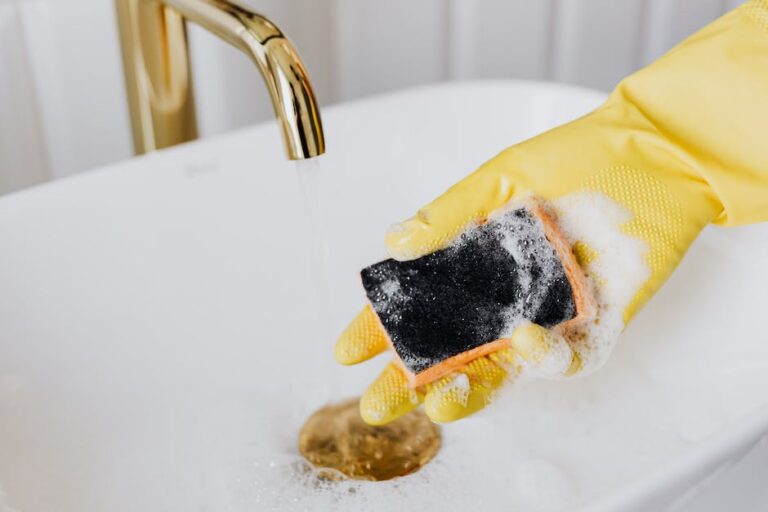
Don't Ignore That Lingering Odor - It Could Be a Sign of a Bigger Problem
 If you've noticed a musty smell coming from your kitchen sink, you're not alone. Many homeowners have experienced this unpleasant odor and have tried various methods to get rid of it. However, simply masking the smell with air fresheners or cleaning products will not solve the root cause. In fact, it could be a sign of a bigger problem with your house design.
First and foremost, the main cause of a musty smell around your kitchen sink is likely due to mold and mildew growth.
These fungi thrive in damp and dark environments, making your kitchen sink an ideal breeding ground. If left untreated, mold and mildew can spread and be harmful to your health. It's important to address this issue as soon as possible to prevent any further damage.
If you've noticed a musty smell coming from your kitchen sink, you're not alone. Many homeowners have experienced this unpleasant odor and have tried various methods to get rid of it. However, simply masking the smell with air fresheners or cleaning products will not solve the root cause. In fact, it could be a sign of a bigger problem with your house design.
First and foremost, the main cause of a musty smell around your kitchen sink is likely due to mold and mildew growth.
These fungi thrive in damp and dark environments, making your kitchen sink an ideal breeding ground. If left untreated, mold and mildew can spread and be harmful to your health. It's important to address this issue as soon as possible to prevent any further damage.
So, what could be causing the dampness and moisture in your kitchen sink area?
 The most common cause is a leaky faucet or pipe.
Even small leaks can create a significant amount of moisture, which can lead to mold and mildew growth. It's important to regularly check for any leaks and have them fixed immediately to prevent further damage.
Another possible cause of the musty smell is poor ventilation in your kitchen.
Without proper airflow, moisture can become trapped and cause a musty odor.
This can be easily solved by installing a range hood or opening windows while cooking to allow for better ventilation.
The most common cause is a leaky faucet or pipe.
Even small leaks can create a significant amount of moisture, which can lead to mold and mildew growth. It's important to regularly check for any leaks and have them fixed immediately to prevent further damage.
Another possible cause of the musty smell is poor ventilation in your kitchen.
Without proper airflow, moisture can become trapped and cause a musty odor.
This can be easily solved by installing a range hood or opening windows while cooking to allow for better ventilation.
How can you get rid of the musty smell?
 While it's important to address the root cause of the musty smell, there are also some temporary solutions to help get rid of the odor.
Cleaning your kitchen sink and drain with a mixture of vinegar and baking soda can help eliminate any mold or mildew growth and neutralize the odor.
Additionally, regularly scrubbing your sink and keeping it dry can prevent any future mold and mildew growth.
In conclusion, a musty smell around your kitchen sink is not something to ignore. It could be a sign of a bigger problem with your house design, such as mold and mildew growth or poor ventilation. Addressing these issues and regularly maintaining your kitchen sink can help eliminate the musty smell and create a healthier and more pleasant living environment.
While it's important to address the root cause of the musty smell, there are also some temporary solutions to help get rid of the odor.
Cleaning your kitchen sink and drain with a mixture of vinegar and baking soda can help eliminate any mold or mildew growth and neutralize the odor.
Additionally, regularly scrubbing your sink and keeping it dry can prevent any future mold and mildew growth.
In conclusion, a musty smell around your kitchen sink is not something to ignore. It could be a sign of a bigger problem with your house design, such as mold and mildew growth or poor ventilation. Addressing these issues and regularly maintaining your kitchen sink can help eliminate the musty smell and create a healthier and more pleasant living environment.

